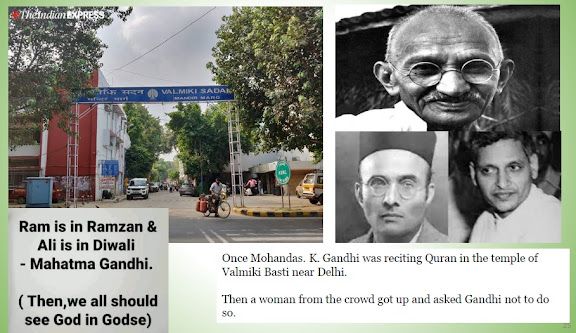Nobel Prize for Economics in 2019 - Banerjee, Duflo & Kremer
Abhijit Banerjee – Indian-Origin
Economist wins Nobel Prize in Economics for his work in Global Poverty. Esther Duflo, wife of Abhijit is the second woman
to win the prize and the youngest winner of the prize. In 2015, Banerjee married his
co-researcher, MIT professor Esther Duflo; they have two children. Banerjee was a joint
supervisor of Duflo's PhD in economics at
MIT in 1999.Duflo is also a Professor of Poverty Alleviation and Development
Economics at MIT. Michael Robert Kremer is an American development economist
who is the Gates Professor of Developing Societies at Harvard University.
The Nobel committee commented:
"Banerjee, Duflo and their co-authors concluded that
students appeared to learn nothing from additional days at school. Neither did
spending on textbooks seem to boost learning, even though the schools in Kenya
lacked many essential inputs. Moreover, in the Indian context Banerjee and Duflo intended to study, many children appeared to learn little:
in results from field tests in the city of Vadodara fewer than one in five third-grade students could correctly answer
first-grade curriculum math test questions.
"In response to such findings, Banerjee, Duflo and co-authors argued that efforts to get more children
into school must be complemented by reforms to improve school quality.”
Modi:
Excellent meeting with Nobel Laureate Abhijit Banerjee. His passion towards
human empowerment is clearly visible. We had a healthy and extensive
interaction on various subjects. India is proud of his accomplishments. Wishing
him the very best for his future endeavours.
Abhijit Banerjee:
I was privileged to meet the PM. The PM gave me quite a
lot of time and told me about his way of thinking about India, which was quite
unique. We have the policies and what he was thinking about it. He talked about
governance and the mistrust people share on the ground, which creates an elite
structure of control.
In that aspect, he also explained how he is trying to
reform the bureaucracy to make it more responsive. To make people understand
the reality on the ground. I think it is important for India to have a
bureaucracy that lives on the ground and gets its stimulus from it. Without
that we get an unresponsive government.
Nobel Prize in Economics 2019
awarded to Abhijit Banerjee, Esther Duflo and Michael Kremer for pioneering
the use of Randomised Control Trials (RCTs) in
development economics.
RCTs method is a new concept moving
from theoretical research to Empirical Research – Based on Experiment and
Observation rather than theory. RCTs in short means Empirical based on
Experience or Experiment. Relying on or
derived from observation or experiment rather than theory is all RCTs means –
Empirical results prove the theory.
RCTs
are well known in medical trials – RCTs concept goes back to the
statistician Ronald Fisher back in the 1930s.
RCTs use the following in sight:
You select two groups that are
similar and then randomly select one to receive the treatment (a drug or a
policy) being tested and then compare the outcome of this group (called the
treatment group).
If the difference is statistically
significant, then that is attributed to the treatment.
Using this method in economics has
altered our view about what policies work and what do not.
As
much as medicine should not be prescribed without diagnosis, policies should
not be implemented without evidence and to the extent RCTs have brought the
spotlight on this, more power to them on this count.
This
method of RCTs now has become one of the main tools used in empirical work in
development economics and in related fields. It has also led to a paradigm
shift in development policy evaluation — the World Bank, and many governments
and large NGOs now insist on randomised control methods wherever
feasible.
RCTs,
however, can mostly be applied to study problems at the micro-level where the
implementation of an individual programme can be done in a randomised way that allows for a
statistically satisfactory evaluation of the programme’s
impact.
RCTs
are not feasible in respect of large-scale macro-level questions.
This
immediately points to both the strength and weaknesses of RCTs: when feasible,
they are a great tool to use, but for many questions of great interest in
development economics such as broad macro-level issues or the more long-run
aspects of development and institutional change, they are not feasible.
Tail- Piece:
J-PAL was founded in 2003 as the "Poverty Action
Lab" by professors Abhijit Banerjee, Esther Duflo and Sendhil Mullainathan. J-PAL was
established to support randomized evaluations measuring interventions against
poverty on topics ranging from agriculture and health to governance and
education. The Lab was renamed in honor of Sheikh Abdul Latif Jameel when his son,
MIT alumnus Mohammed Abdul Latif Jameel, supported it with
three major endowments in 2005. He further endowed its activities in 2009.
Nobel Laureate Abhijit Banerjee Indian born American
said:He disowned highly politicised Rahul Much hyped Nyuntam Aay Yojana (abbr. Nyay) during Lokh Sabha 2019 election by
complaining that the scheme was ill designed by Rahul Congress. Perhaps his Random Control Trials (RCTs)
could not be tested due to lack of time or his hurry to earn instant popularity
in India. Anyhow his getting Nobel prize is on a different research work.
It is great and unique that he shared the award with his
wife Esther Duflo and another
economics professor Michael Kremer.
As Indians we are proud and hail all three Nobel
laureates.
Banerjee said there was a need to bring down the govt’s stake in PSBs to
less than 50%. The Nobel laureate further said Ayushman Bharat scheme serves a useful purpose in ensuring
access to healthcare for the poor. Nobel Laureate Abhijit Banerjee clarified that he
had suggested only ₹ 2500 for every poor
family under Rahul'S NYAY Scheme, but the
enhanced amount of ₹ 6000 pm for the
poor was Congress’ decision.
The NAYAY was the total failure for Congress, as it had
lost Lok Sabha election 2019.









Comments